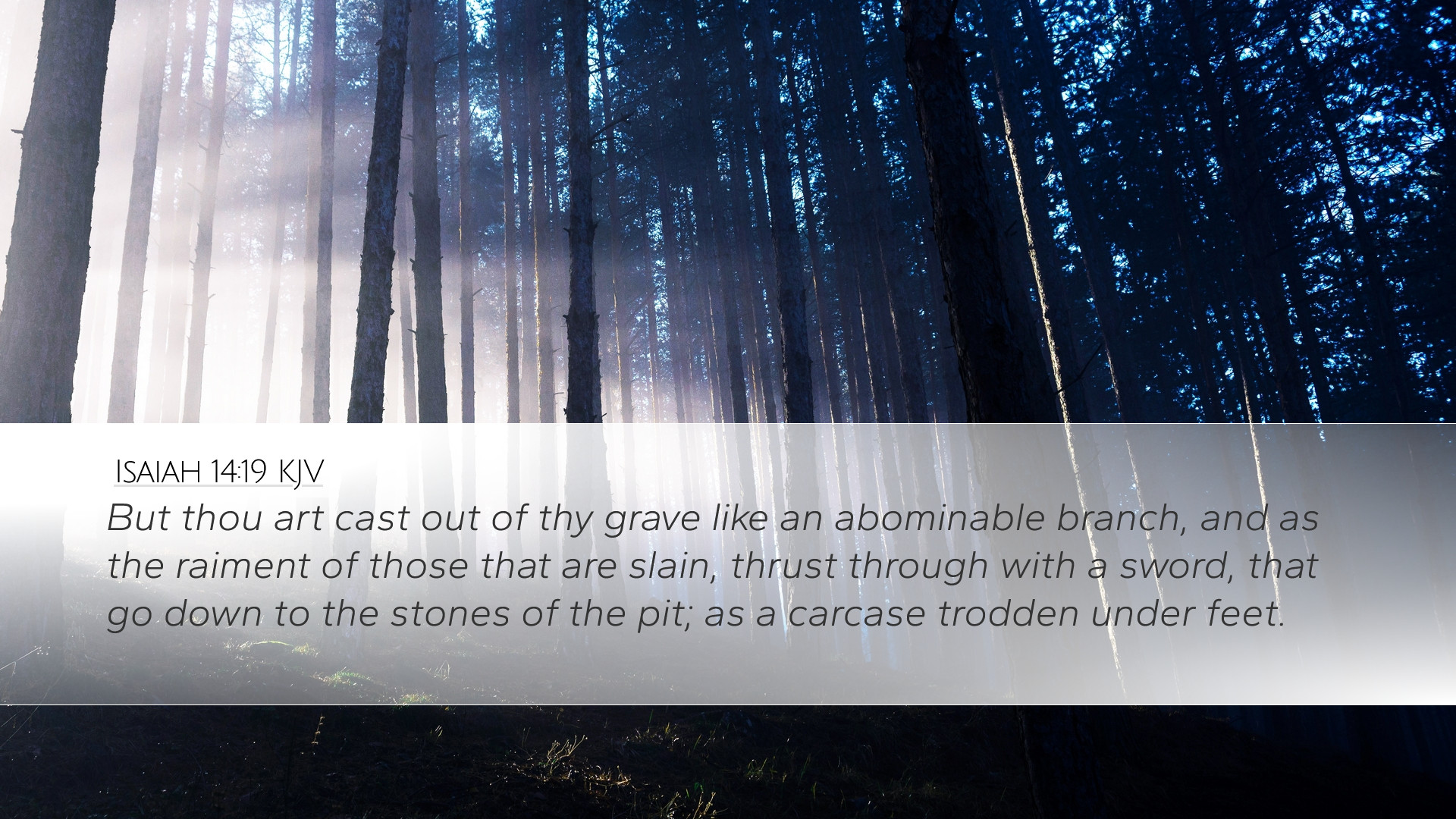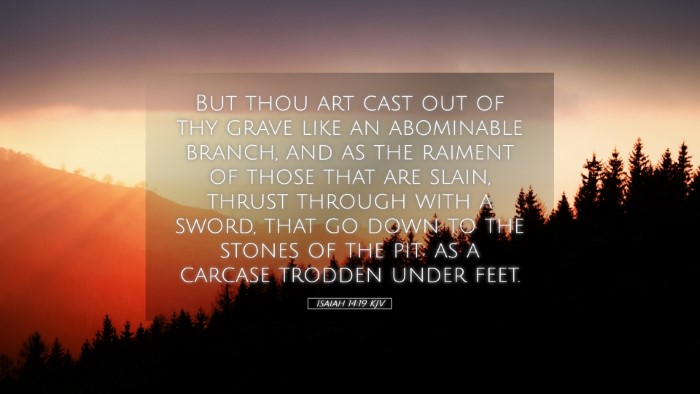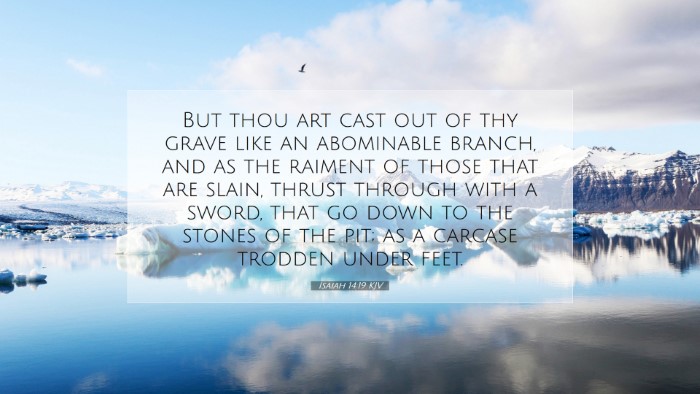Commentary on Isaiah 14:19
Isaiah 14:19 states:
"But thou art cast out of thy grave like an abominable branch, and as the raiment of those that are slain, thrust through with a sword, that go down to the stones of the pit; as a carcase trodden under feet."
Contextual Overview
This verse is part of a larger passage that addresses the fall of Babylon, symbolizing pride and rebellion against God. Isaiah uses the imagery of death and burial to illustrate the ultimate fate of the proud and powerful.
Insights from Matthew Henry
Matthew Henry emphasizes the humiliation of the proud as a central theme in this passage. He notes that:
- Division of the Verse: The verse describes two significant images—the casting out of the dead and the abominable state of the carcass.
- Contrast of Burial Customs: In ancient times, a dignified burial was a symbol of honor; in contrast, the verse depicts the proud being treated as refuse, rejected even in death.
- Moral Application: Henry draws the conclusion that pride leads to downfall, with God avenging the blood of the slain by casting down the oppressors.
Insights from Albert Barnes
Albert Barnes provides a detailed examination of the original Hebrew terms and their meanings. He highlights:
- Cast Out: The phrase indicates a forceful expulsion from one’s rightful place, a fitting punishment for arrogance.
- Abominable Branch: This metaphor refers to the rejected or worthless entity—the proud are likened to a bad plant cut off disastrously.
- Violent Death Imagery: The description of being "thrust through with a sword" and "as a carcase" illustrates the ultimate vindication of divine justice, emphasizing that those who live by violence will ultimately face violence.
Insights from Adam Clarke
Adam Clarke focuses on the literary and historical context, elucidating further with these points:
- Historical Significance: Clarke notes that Babylon, as a great empire, is representative of all earthly powers that oppose God—ultimately destined for destruction.
- Moral Decline: The imagery of being "trodden under feet" alludes to a complete degradation of status, leading to spiritual bankruptcy and social ruin.
- Ultimate Divine Judgement: Clarke underscores that despite the apparent prosperity of the wicked, God’s judgment is inevitable; they shall face their reckoning.
Theological Implications
The passage reflects several profound theological implications:
- Divine Justice: God is portrayed as sovereign and just, responding to the pride and oppression of nations with appropriate judgment.
- Eschatological Scope: This verse can be seen as prophetic, foreshadowing the ultimate triumph of God over evil, applicable to broader theological discussions on eschatology.
- Human Reactions: Believers are reminded of the dangers of pride and self-exaltation—warnings echoing through the ages.
Practical Applications
From this commentary, several applications can be drawn for contemporary believers:
- Humility Before God: This passage serves as a powerful reminder to practice humility, recognizing that it is by grace we stand.
- The Weight of Actions: Pastors and leaders should teach that our actions have consequences, not just in this life but in the life to come.
- Awareness of Moral Clarity: Believers ought to be vigilant against the creeping tendencies of pride and arrogance in their own lives and communities.
Concluding Thoughts
Isaiah 14:19 is a verse steeped in rich theological imagery that serves both as a warning and an encouragement. Readers are exhorted to come to terms with the reality of divine justice, the fleeting nature of pride, and the assurance that God's wrath against oppression is both real and inevitable. It challenges scholars and theologians alike to reflect on the nature of human ambition in light of God's eternal sovereignty.


